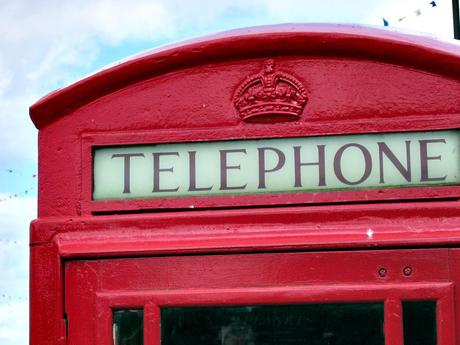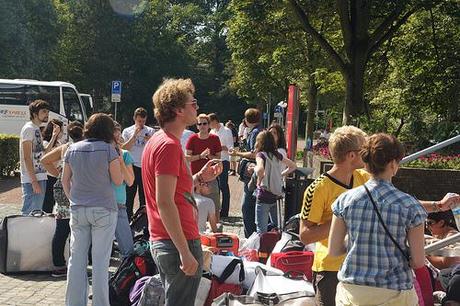It’s one thing going abroad on holiday to the UK, quite another to go there to study. While the aim of a holiday is to have as much fun as possible in as little time as possible, the object of study is primarily to learn.

Image by DanBrady via Flickr
The positive side of this is that international students get more of a real idea of what it is like to live in the UK than someone merely passing through the usual tourist traps. They may cook for themselves, shopping with a local’s enthusiasm for finding the best produce at the cheapest prices, and will have time to appreciate and discover cultural activities hidden from those on holiday.
Accommodation
If there’s an option to stay in institutional or institutionally-allocated accommodation, it’s wise to accept. Finding private accommodation on arrival in the UK is tiring and stressful. Most private lettings require the tenant to sign a contract for a period of at least six months.
Institutionally-allocated accommodation should be of a reliable standard. Before making a booking, check the distances between the accommodation and the school. Calculate the time it takes to commute and the transport needed to do so. A daily two hour journey can quickly get wearisome.
Adjusting
Nearly all international students suffer some form of culture shock during their time in the UK. The secret is to not get too distressed by it. Feelings of confusion, loneliness or even revulsion soon change. Take one day at a time and make sure to have plenty of exercise and a healthy diet. Keep in touch with home and don’t be afraid to talk about your feelings – either with friends or a student advice body.
Getting the most out of a course
As clichéd as it sounds, the only person you’ll hurt by missing lessons and failing to do homework is yourself. Allocating an hour a day after class for working will mean you never fall behind and have the evening free to enjoy yourself.

Image by dfarrell07 via Flickr
Making friends
Everyone feels shy at first, even those who appear confident. Don’t be afraid of talking to people and try and involve yourself in organised activities wherever possible – these can include everything from joining sporting clubs to going away on cultural excursions. For those on Spanish, French or Portuguese courses London has good transport links with mainland Europe, making a trip across the channel perfectly feasible.
Making friends with other international students is easy ¬– a little too easy. While friends from your native country are all well and good, try and broaden your friendship group to include non-international students too.
For those studying at an English language school London provides a great opportunity to practice newfound skills. Making a conscious effort to talk to native speakers in the city’s parks, cafes, pubs and clubs can quickly improve a student’s English abilities and make them more confident.
What to expect
Not many people speak the kind of English heard on the BBC. Be ready for accents and don’t be afraid to ask people to repeat themselves. When talking to someone, be aware that British people may feel uncomfortable if you stand too close to them. It’s also important to remember that it’s considered polite to say ‘please’ and ‘thank you’.

